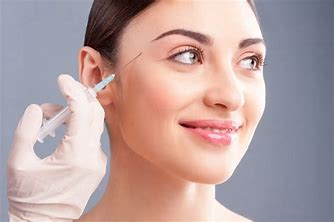Botulinum, an unusual mental health tool

Botulinum, an unusual mental health tool
With mental health firmly entrenched in the nations thoughts at the moment it would seem strange to discuss botulinum aka ‘Botox’. However, a young patient I saw recently led me to contemplating the benefits of the non-cosmetic indications for botulinum and the role it can play in mental health.
The young man in question had become socially isolated, withdrawn and anxious over his primary palmar and axillary hyperhidrosis to the point it was significantly impacting his ability to function in everyday life. He is a university student and was about to start applying for jobs. The thought of having to shake hands at a job interview terrified him. Additionally, the fear of obvious sweat marks in his shirts had caused him to spend significant amounts of money buying shirts to see which ones displayed the least obvious tell-tale signs of sweating. However, with mounting student debt this was not economically feasible.
After his own extensive trials of over the counter antiperspirants to no avail, as a teenager, his father had taken him to his GP. He was started on clonidine but noticed no improvement in the hyperhidrosis and significant side effects. He had performed his own further extensive research, including talking to fellow sufferers and came to me seeking botulinum for palmar hyperhidrosis. After a discussion regarding risks and benefits he gave informed consent for this treatment.
Prompt referral to his GP as needed, for management of any elicited underlying, secondary or associated medical conditions, would also be part of appropriate management. For example, ensuring that the hyperhidrosis was not a secondary effect of anxiety or any other medical condition and also that he had no signs or symptoms for any other mood disorders would obviously be the priority of treatment. Apart from a thorough patient history and physical examination, depression and anxiety questionnaires can help with this.
A few weeks later he reported back an 85% improvement in symptoms and felt able to confidently shake hands. His family also noted, through him, that he was becoming more sociable and seemed happier in himself.
Whilst I prefer patients to try conservative management of most conditions, prescription medications can help patients break a vicious cycle of symptoms, as in this case. Additional benefits to his anxiety and reduction in social isolation illustrates the potential benefits for mental health.
Other non-cosmetic uses of botulinum include, incontinence from overactive bladder or bladder problems from spinal cord injury or multiple sclerosis; blepharospasm; hemifacial spasm; VIIth nerve disorders; spasticity in children over 2 years old; focal spasticity in adults; strabismus; cervical dystonia; and chronic migraine.
There are contraindications, precautions, and potential side effects of all medications and the appropriateness of using botulinum needs to be discussed with the patients GP or their medically qualified and appropriately trained botulinum provider.
